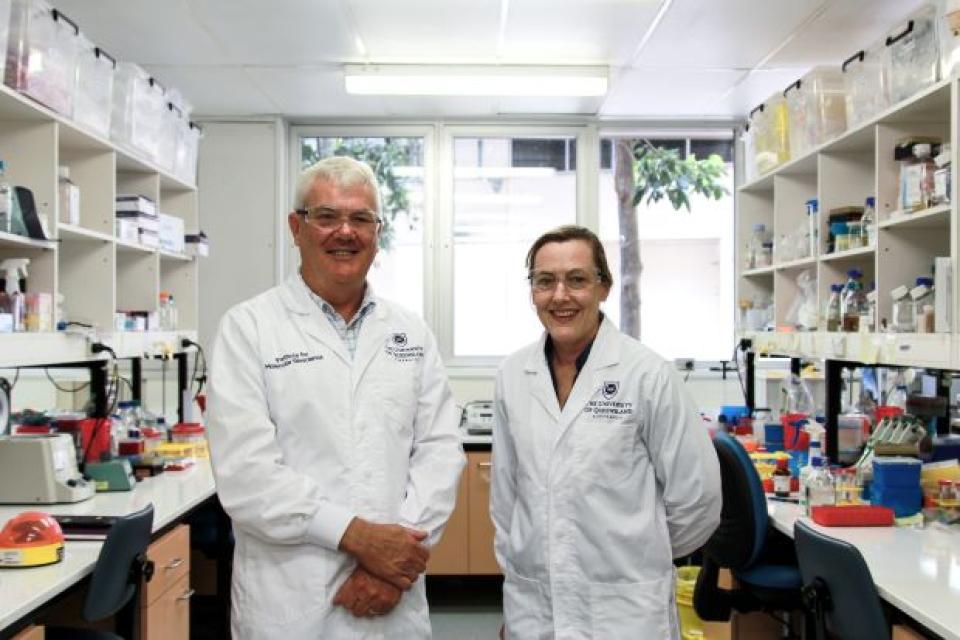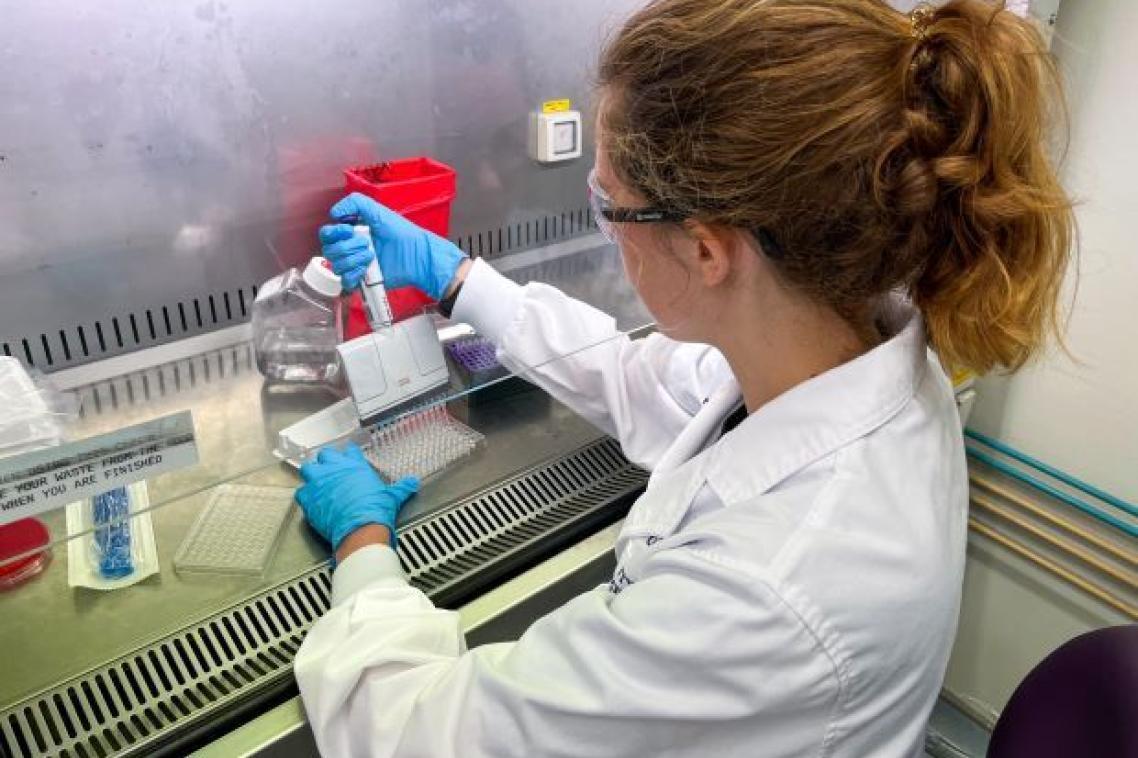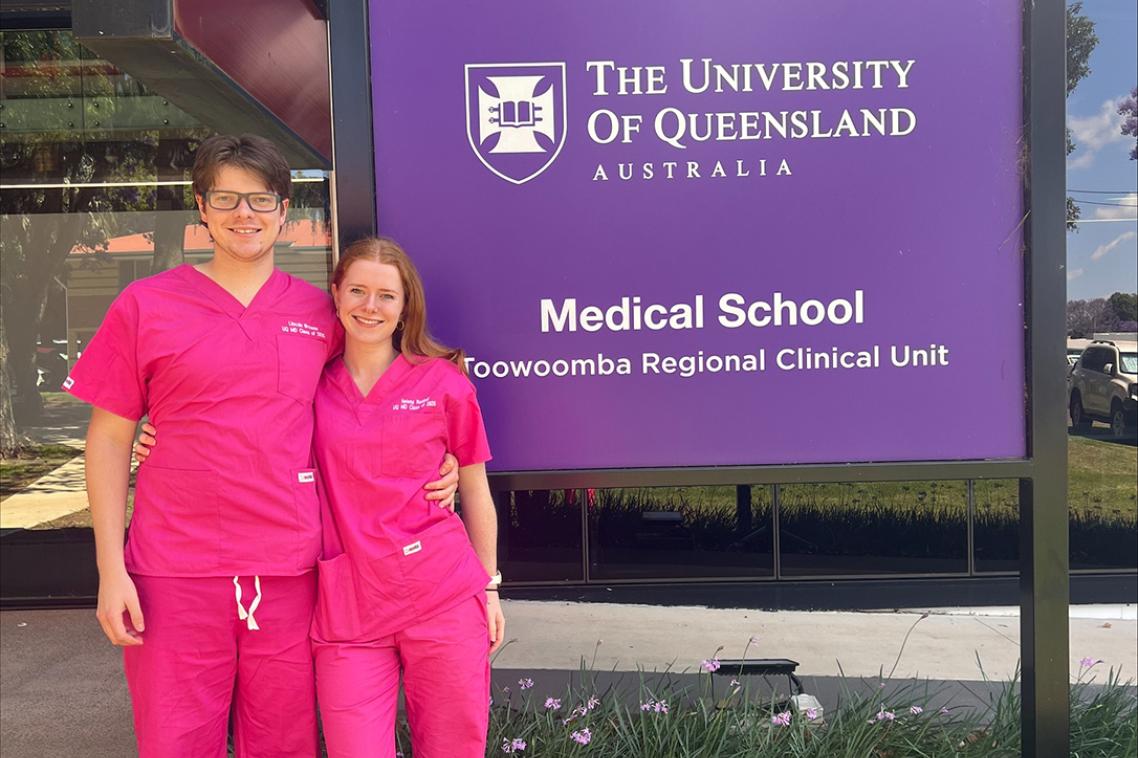Promising results in the push for a Strep-A vaccine

A 3-D illustration of Strep-A bacterial cells.
(Photo credit: Kirsty Pargeter/Adobe Images. )
A team of microbiologists and immunologists has completed the first steps towards developing a universal vaccine against Group A Streptococcus (Strep-A).
The University of Queensland-led research in partnership with Moderna has shown Strep-A, a bacterial pathogen which can cause severe infections including invasive infections and rheumatic heart disease, can be successfully targeted using mRNA vaccine technology.
Professor Mark Walker from UQ’s Institute for Molecular Bioscience said research of an mRNA vaccine on the Strep-A infection in mouse models has shown efficacy and strong immune responses.
“We know from the COVID-19 pandemic that mRNA technology is safe and clinically proven for viruses, so our team wanted to see if this technology could crossover and be used against bacterial pathogens,” Professor Walker said.
“The results are certainly very encouraging.”
mRNA vaccines work by giving instructions to the body’s own cells for producing a protein that the immune system responds to.
Professor Gabrielle Belz from UQ’s Frazer Institute said her team identified some highly conserved components of Strep-A that they then had encoded in mRNA.
“We were able to get good antibody responses with activation of several key immune cells, some of which go around and destroy pathogen-infected cells,” Professor Belz said.
“It really establishes the groundwork so we can confidently progress to the next stage.”

Professor Mark Walker and Professor Gabrielle Belz.
(Photo credit: The University of Queensland.)
Professor Walker said a commercial vaccine to prevent Strep-A would tackle a significant global public health challenge.
“Currently Strep-A is only treated with antibiotics after infection occurs,” he said.
“Most cases are mild like strep throat or impetigo, but some people go on to develop diseases which can be fatal.
“Every year 350,000 people globally die from rheumatic heart disease, while 150,000 people die from invasive Strep-A infections.
“Vulnerable groups include children, the elderly and our Indigenous community.
“A preventative vaccine would have significant impact.”
The team is now accelerating into the next phase of research.
“Our end goal is for our research to contribute to a commercial product that can be used on humans,” Professor Belz said.
“That is at least 3 years away, but the project has extraordinary promise.
“It also shows the importance of collaboration, with our immunology and microbiology teams working in synergy with industry to help solve a major problem.”
The research is published in Nature Communications.
Collaboration and acknowledgements
The project is in partnership with Moderna and funded by the Leducq Foundation and an NHMRC grant. UQ's Frazer Institute is based at the Translational Research Institute.Topics
Related articles

Funding injection for Strep A vaccine research at UQ

Next generation of regional Queensland doctors celebrate graduation
Media contact
UQ Communications
communications@uq.edu.au
+61 429 056 139
